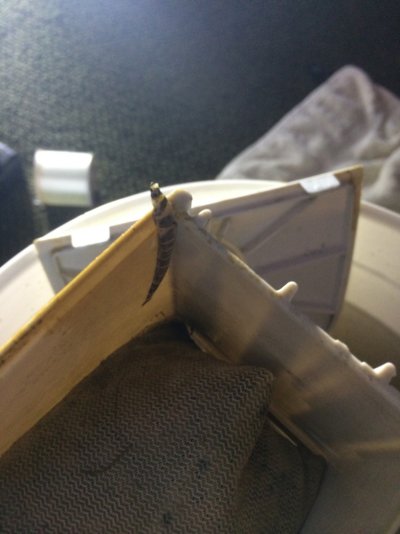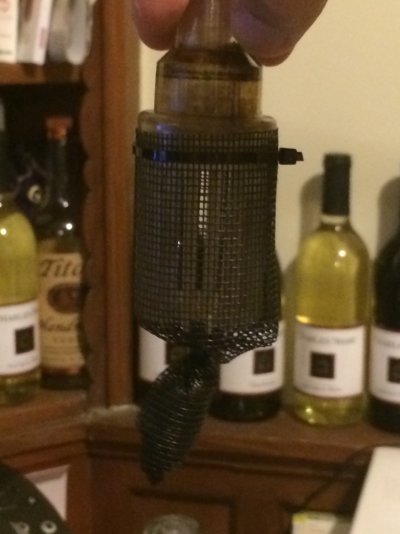emilygupps
Aquarium Advice FINatic
Our water as of last night (the night after water change day) we did %30 mind you, this is a 180g.
Ph. 8.2
Ammonia. 0
Nitrite. 0
Nitrate. 5-10 (yay?!)
Non chelated iron 0
Chelated iron 0
Phosphate 0
An other loach died yesterday. He had been acting crazy for two nights swimming in cork screws in the middle of the day, kind of like he was crazy. Every time we prepared to euthanize him he would disappear. I'm not sure how many are left now. They're hard to keep track of. We are certainly done with khulis at least in this tank. I doubt I'll be able to catch the healthy ones with out breaking the tank down.
We have been doing water changes up to 40% depending on the test results some times 3 times a week for the last three weeks. Our nitrates have been hovering around 40 the last week or so. And we do use prime every water change, 1 cap:50g ski usually put 4 caps full (a little bit over the dose) after we are done sucking water out bug before we push water back in.
As for the algae we have decreased the light intensity and started dosing the tank with the minerals. Oddly in this tank after he pours the frets in the water gets cloudy for six hours. None of the other tanks do that. And two other other planted tanks are younger than this one.
Sent from my iPhone
Ph. 8.2
Ammonia. 0
Nitrite. 0
Nitrate. 5-10 (yay?!)
Non chelated iron 0
Chelated iron 0
Phosphate 0
An other loach died yesterday. He had been acting crazy for two nights swimming in cork screws in the middle of the day, kind of like he was crazy. Every time we prepared to euthanize him he would disappear. I'm not sure how many are left now. They're hard to keep track of. We are certainly done with khulis at least in this tank. I doubt I'll be able to catch the healthy ones with out breaking the tank down.
We have been doing water changes up to 40% depending on the test results some times 3 times a week for the last three weeks. Our nitrates have been hovering around 40 the last week or so. And we do use prime every water change, 1 cap:50g ski usually put 4 caps full (a little bit over the dose) after we are done sucking water out bug before we push water back in.
As for the algae we have decreased the light intensity and started dosing the tank with the minerals. Oddly in this tank after he pours the frets in the water gets cloudy for six hours. None of the other tanks do that. And two other other planted tanks are younger than this one.
Sent from my iPhone


